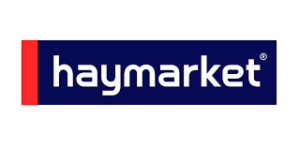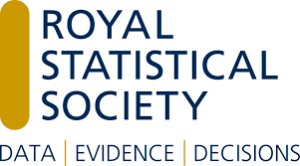Integration between your event registration system and other business solutions like your CRM can bring real value to your events. It can help you save time and boost your team’s productivity. It can improve the way you share critical event information with key people across your organisation. It can also help with GDPR compliance by reducing the risks of a data breach and giving you the control you need to manage things like attendee consent, data deletion and Subject Access Requests (SARs).
Webinar: The Importance of Data Integration in a Post-GDPR World
What is Event Data Integration?
Event planners deal with so many different systems to capture and manage information around their events – from their event management and registration systems to marketing, sales, finance, membership and so on. Having an ecosystem where all these different solutions automatically talk to each other through the use of APIs (Application Programme Interface) is where data integration comes in.
If you haven’t dealt with APIs, then think of it as a piece of software that functions as a door or window. It’s that mechanism that allows your event management system to share data with your event app. Or your registration system to share new attendee details with your CRM. Or your event payment transactions with your finance system and so on.
Over the past few years, we’ve seen event planners doing some great things by integrating their data with check-in systems, social media tools and event apps. However, what we’re seeing more of now is that same concept of data sharing being applied with big back-end business systems. At Eventsforce, we’ve seen a 40% increase in the number of customers working on integration projects over the past year – and we expect this trend to grow significantly as event planners try to improve the way they manage their data in a post-GDPR world.
Why Is Data Integration Important for Event Planners?
The ability to automatically share information between an event management or registration solution like Eventsforce and other business systems like your CRM, marketing, membership and finance can bring you a host of benefits:
Time Savings: Reduce the endless hours you and your team spend manually replicating event data from one system to another
Increased Productivity: Improve productivity by spending less time on admin tasks and focusing your team’s efforts on other aspects of the event.
Data Accuracy: Automatic updates between systems means you’re always relying on the most up-to-date and accurate data – less errors and inconsistencies.
Better Insight: Key people across your organisation have insight to important event data at all times – which helps in making more informed decisions around your events.
Want to learn more about the benefits of data integration? Find out how you can save time, improve data sharing and reduce the risk of a data breach by downloading your copy of ‘The Event Planner’s Guide to Data Integration’ – includes case studies from Schroders, Haymarket, Royal Statistical Society and the Lib Dems.
How Can Data Integration Help with GDPR Compliance?
The EU’s new General Data Protection Regulation (GDPR) is coming into effect on May 25th 2018 and is set to radically change the way events collect, process and protect the personal information of people coming to their events. What this essentially means is that event planners need to be a lot more aware on what personal data they collect from attendees, where this data is stored, who has access to it, what the data is used for and more importantly – how this data is kept safe. They need to have a lot more control in the way this information is shared and managed across their own organisation – and this is exactly where data integration can bring real value:
Better data management: Integration between your event management system and CRM, for example, ensures any personal information you collect from registration forms and make changes to is automatically updated in your CRM too (and vice versa). It will give everyone who has access to both systems insight into what personal information you hold from people coming to events, what consent you have and how their data is being managed and by whom – all of which are critical to GDPR compliance.
Read: How GDPR Will Change the Rights of Your Attendees
Improved data security: It’s important to remember that one of the key things that could get organisations into a lot of trouble under GDPR is a data breach. Integration between your event management solution and other business systems will greatly improve the security of your event data by eliminating security risks associated with email communications, sending unsecure spreadsheets, manual transfers and having printed documents lying around.
Read: The Event Planner’s Guide to Data Security in a Post-GDPR World
To illustrate this in more detail, let’s take a look at a couple of examples:
Example 1: Integration Between Event Management System and CRM
Most organisations have some type of CRM system like Salesforce that manages all their data on their customers and contacts. Integrating your event management system with your CRM ensures the quick, accurate and seamless flow of data between the two systems where updates in one system are automatically reflected in the other.
- When an attendee makes a change to their profile in your registration system or decides to withdraws marketing consent, the change is automatically updated in your CRM. This ensures your marketing department doesn’t continue sending them emails just because you forgot to inform them of the change.
- New registrations can automatically be created as leads in your CRM if an attendee has given the right kind of consent – your marketing and sales team are always up to date on how this data can be used.
- If an attendee asks you to delete all the personal information you hold on them, then any changes in the event system will also be reflected in the CRM (or vice-versa).
- Data integration between the two system also reduces the risk of a data breach by eliminating the need for exporting registration data to an excel sheet and manually uploading attendee information into your CRM.
Example 2: Integration Between Event Management System and Membership
Most membership organisations, such as associations, use some form of membership system which helps them capture and manage all the data around their members. Integration between your event registration and membership systems means that any changes to records in one system is automatically updated in the other.
- When a member makes a change to their profile in your registration system or withdraws consent in how you can use their information, the change is also automatically updated in your membership system (and vice versa).
- Similarly, any renewals or new membership sign-ups are automatically recognised and updated in your registration system. If a non-member attendee becomes a member – then this could potentially change the legal basis for processing their personal information and the events marketing team need to be aware.
- Membership teams can have real-time insight into the event attendance history of each member – also helps in managing Continual Professional Development (CPD) processes a lot more effectively.
- If a member asks the membership team to delete their personal information or wants to know what information you hold on them, then all the relevant event-related information is already in your membership system. You also don’t need to export registration data to an excel sheet and manually upload attendee information into your membership data – less chance of data getting into the wrong hands!
Top Considerations for Successful Event Data Integration
If you feel that dealing with APIs and integration models may be somewhat technically challenging – don’t be discouraged. Yes, your IT guys may be the ones who have to implement the technical aspects of an integration project. However, data integration is a business issue, not a technical one – with business objectives and consequences (like GDPR compliance) that can directly impact your events.
Whatever data integration project you decide to go with, you need to make sure it works for you and your events. We would recommend you follow these guidelines that identify some of the most common challenges of data integration and outlines the key steps event planners specifically need to take to make sure their integration projects are a success. It includes things like getting all your stakeholders involved, thinking carefully about how you’d like to share event data between different systems, setting time and budgets, testing and so on. Thinking about all these points will ensure that the whole process will be smoother and a lot more flexible for any changes you want to make in the future.
Conclusion
If you’re not sure where to start, then talk to your event tech provider. Ask them how they can support you on an integration project and how it can help in meeting GDPR requirements. While many of them provide APIs for their software, many like Eventsforce also have established partnerships and API integration capabilities with tried and tested software solutions. This is helpful as you’ll be able to get things up and running without investing the time and money into any coding work that allows data to be shared between two systems. And if these API relationships don’t exist, it’s not a big deal. Just make sure they understand what it is you want to achieve and that they’re able to support you with the necessary recommendations and workflows that will make your integration projects a success.
Eventsforce offers a comprehensive set of event management solutions, services and expertise that can help support the event planner’s journey to GDPR compliance – from audit trails and consent management to anonymisation of personal information and data security.
For more info, please click here or get in touch: gdpr@eventsforce.com
For more information about Eventsforce and its data integration services, please click here.
















